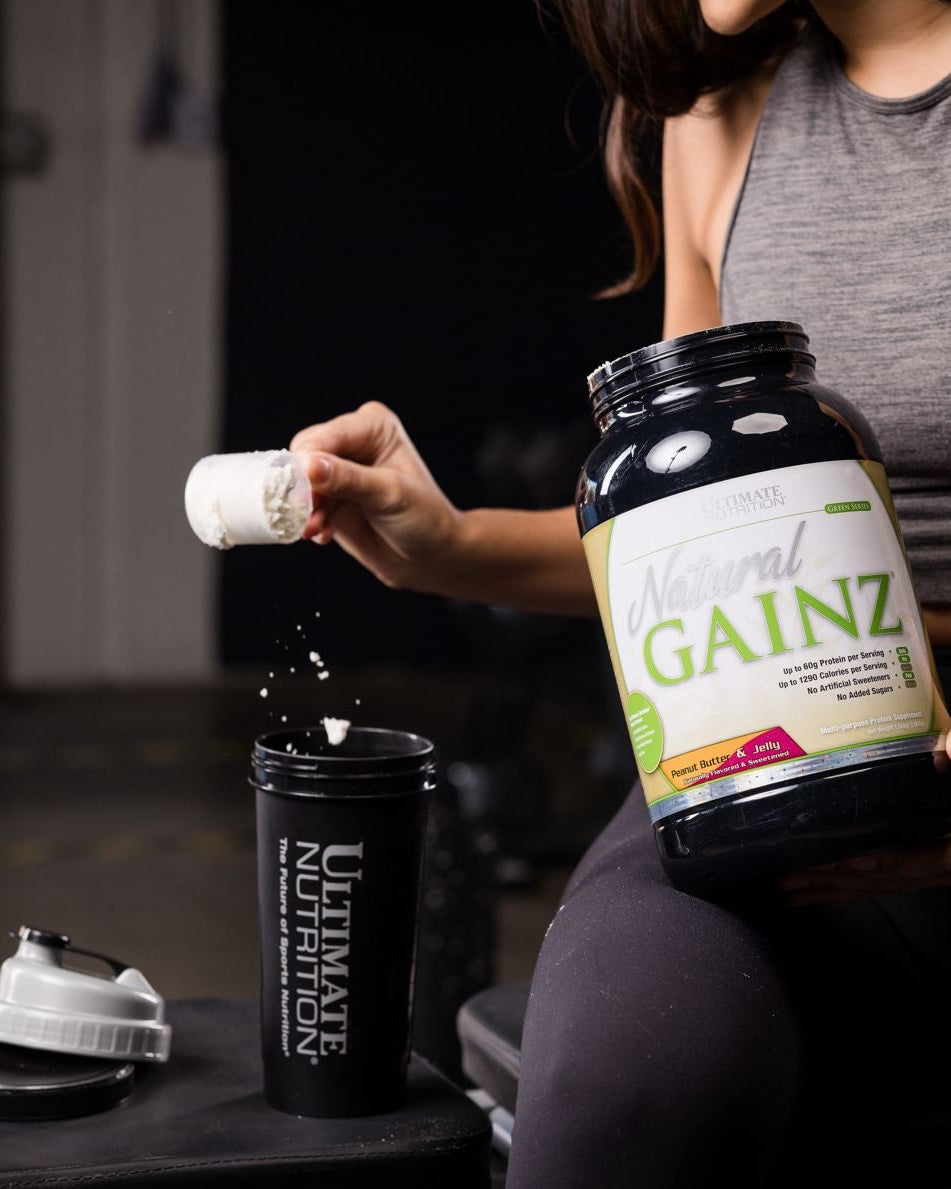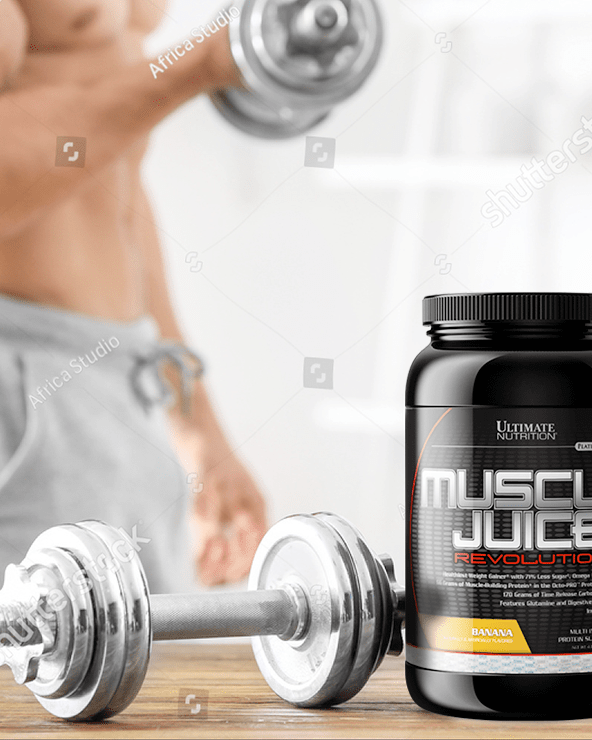When it comes to leading a healthy and fit lifestyle, protein takes center stage.
It's a key player in supporting your overall well-being, aiding in cell repair, muscle building, and energy production.
Out of the various protein types out there, whey protein stands as a true champion - a complete protein packed with all nine essential amino acids that our bodies crave.
WHAT ARE AMINO ACIDS?
Amino acids are the building blocks of life, and our bodies require 20 different types to function optimally.
While some amino acids can be synthesized by the body, there are nine that are deemed "essential" - meaning they must be obtained from our diet.
Enter whey protein, a nutritional powerhouse that steps up to fulfill this essential requirement. Derived from milk during the cheese-making process, whey protein boasts an impressive amino acid profile, making it an invaluable addition to your dietary regimen.
HOW DOES WHEY PROTEIN FACTOR IN?
Whey protein is a game-changer for fitness enthusiasts.
Whether you're an athlete or simply aiming for better health, adding whey protein to your routine can make a significant difference.
It supports muscle repair, growth, and energy demands with its rich content of BCAAs.
Its versatility makes it a convenient supplement, though moderation is key to avoid adverse effects. With its unmatched nutritional profile, whey protein is a valuable addition to any health-conscious diet. Source

WHY ESSENTIAL AMINO ACIDS ARE IMPORTANT
Essential amino acids are crucial for various vital functions in the body, including protein synthesis, hormone creation, and neurotransmitter production.
These amino acids, such as leucine, isoleucine, valine, histidine, lysine, methionine, phenylalanine, threonine, and tryptophan, cannot be synthesized by the body and must be obtained through the diet.
Each amino acid serves a specific role, like leucine initiating protein synthesis and valine regulating blood sugar levels and supporting energy production.
Understanding their importance empowers you to make informed dietary choices for your health and fitness journey.
HOW WHEY PROTEIN HELPS IN MUSCLE GROWTH & REPAIR
Whey protein is a top choice for athletes due to its high-quality and easily digestible protein.
Its rapid absorption makes it an ideal post-workout protein source, supporting muscle recovery and protein synthesis.
Studies have shown that whey protein, combined with exercise, can enhance lean body mass and promote muscle growth. Source.
Additionally, it aids in weight loss by reducing hunger, keeping you feeling full for longer.
Embracing whey protein in your fitness routine can lead to impressive results for your overall health and body composition goals.

ROLE OF WHEY PROTEIN IN MAINTAINING OVERALL HEALTH
Whey protein offers more than just muscle development benefits; it positively impacts overall health.
With abundant protein and essential amino acids, it strengthens the immune system, aids in weight management, and improves cardiovascular health.
Its antioxidant richness, including glutathione, boosts immunity, and its bioactive components lower blood pressure and blood sugar levels, which can potentially reduce stress and depression.
Additionally, whey protein's anti-inflammatory properties enhance overall well-being.
Embracing whey protein in your lifestyle ensures a holistic approach to health, benefiting both your physique and overall well-being.
HOW TO INCORPORATE WHEY PROTEIN IN YOUR DIET
Incorporating whey protein into your daily routine is simple and enjoyable, especially with delicious whey protein shakes.
These shakes can be easily mixed with water, milk, or blended with fruits for a nutritious beverage.
You can also get creative and use whey protein in cooking and baking to add a healthy twist to meals.
For optimal muscle recovery, consume whey protein within 30 minutes after your workout. The ideal whey protein intake varies based on individual needs and fitness goals, but active individuals generally aim for 1.2 to 2.0 grams of protein per kilogram of body weight per day.
Customize your whey protein consumption to maximize its benefits and propel your health and fitness journey.
THE SAFETY & SIDE EFFECTS OF WHEY PROTEIN
When adding whey protein to your diet, moderation is crucial to avoid potential side effects like bloating and digestive discomfort.
Excessive protein intake can even lead to liver and kidney issues, emphasizing the need for mindful consumption. Those with lactose intolerance or dairy allergies should be cautious, as whey protein contains lactose.
However, when consumed as part of a balanced diet and exercise routine, whey protein can safely and effectively support muscle building and recovery.
Always consult a healthcare professional before making any dietary changes or starting a new supplement.
By embracing whey protein thoughtfully, you can enjoy its benefits while prioritizing your well-being on your health and fitness journey.
WHAT’S THE DIFFERENCE BETWEEN EAAs and BCAAs?
Understanding the difference between EAAs and BCAAs is vital for fitness and health.
EAAs are nine amino acids essential for the body, while BCAAs (leucine, isoleucine, and valine) are known for their direct impact on muscle tissue.
Both play crucial roles in muscle development and overall well-being, making them valuable additions to your nutrition plan.

YOUR TAKE HOME MESSAGE
To sum up, whey protein stands as a complete and essential source of amino acids, playing a pivotal role in muscle development, repair, and overall well-being.
Its rich BCAAs content supports muscle recovery and growth, earning it widespread popularity among athletes and fitness enthusiasts alike.
Beyond its muscle benefits, whey protein's essential amino acids facilitate numerous physiological processes, contributing to overall health.
One of the key advantages of whey protein is its versatility, easily incorporated into various diets, making it a convenient supplement for those leading busy lifestyles.However, it's crucial to maintain moderation to avoid potential adverse effects.
All in all, with its exceptional nutritional profile, whey protein unquestionably proves its worth as a valuable addition to the diet of anyone striving for optimal health and fitness.
Wishing You Strength & Success,
Sandra, R.H.N.
The information provided in our articles is meant for informational and educational purposes exclusively and should not be considered as medical advice. If you have any concerns, it is essential to consult a healthcare professional before starting a new nutritional product or making significant changes to your diet. These products are not intended to diagnose, treat, cure, prevent disease.






















Comments
Awesome! For some reason always felt guilty about protein powder. This article was super informative!